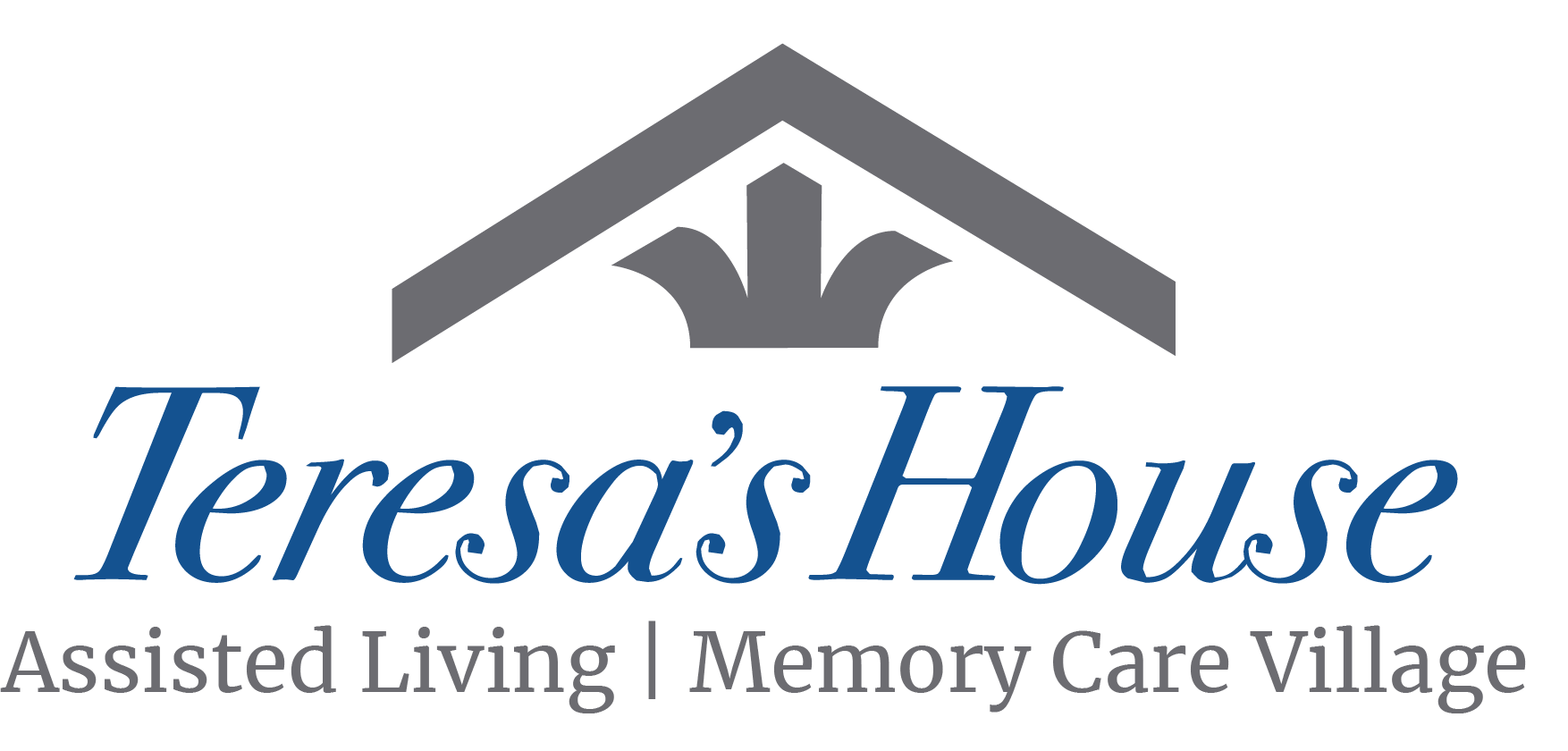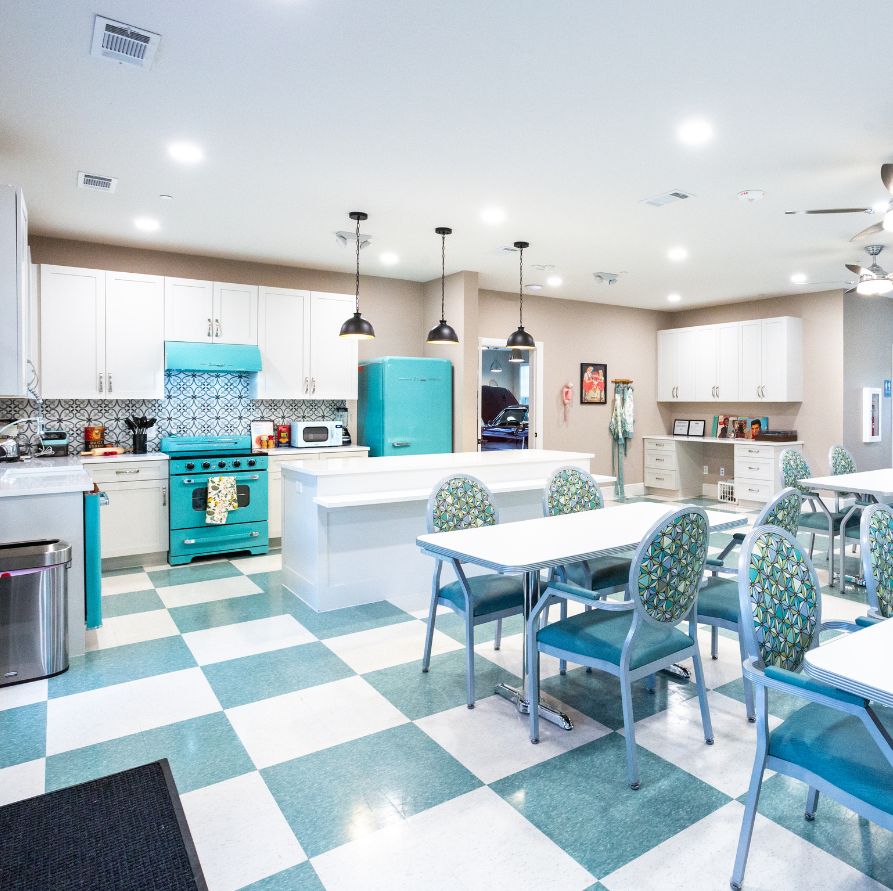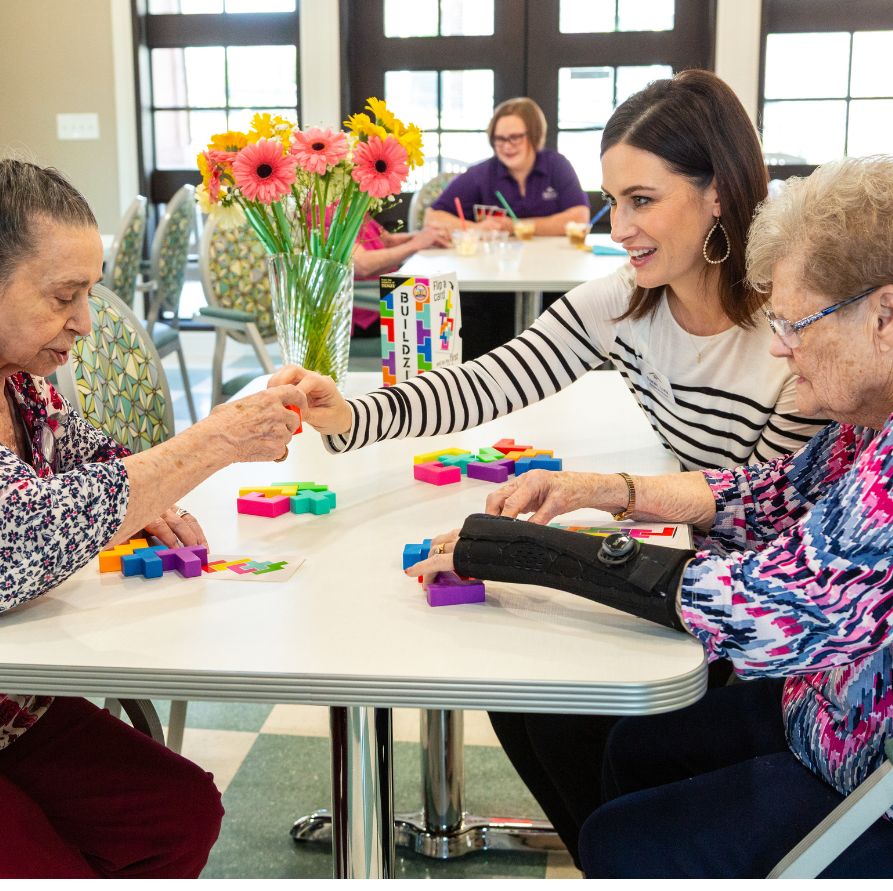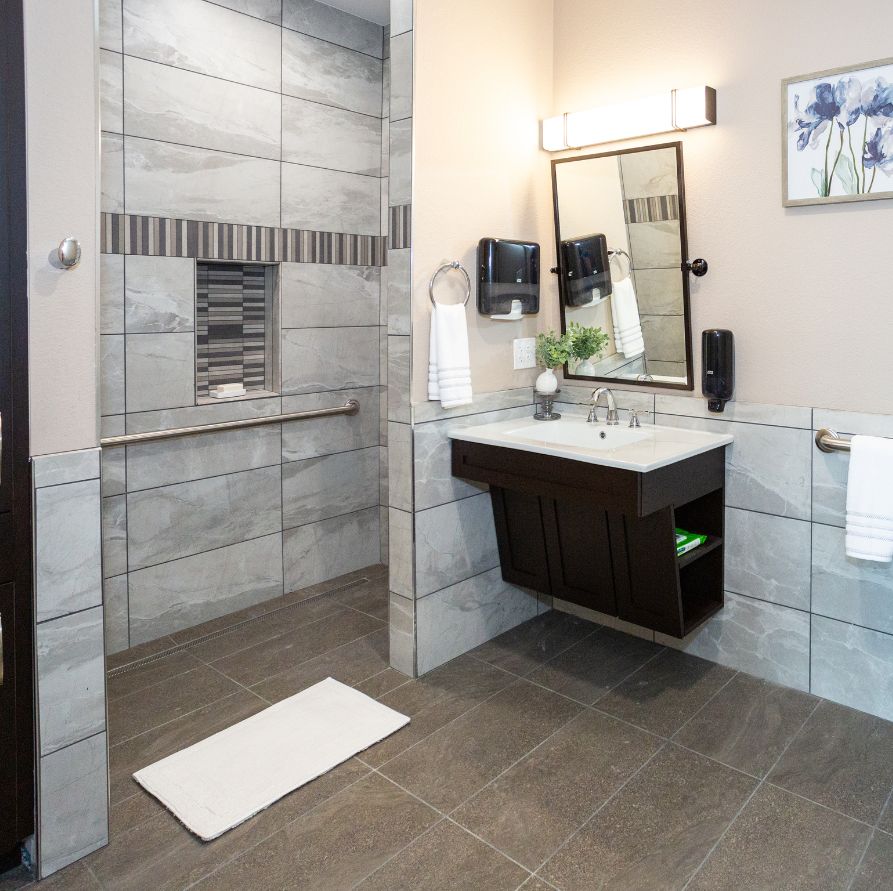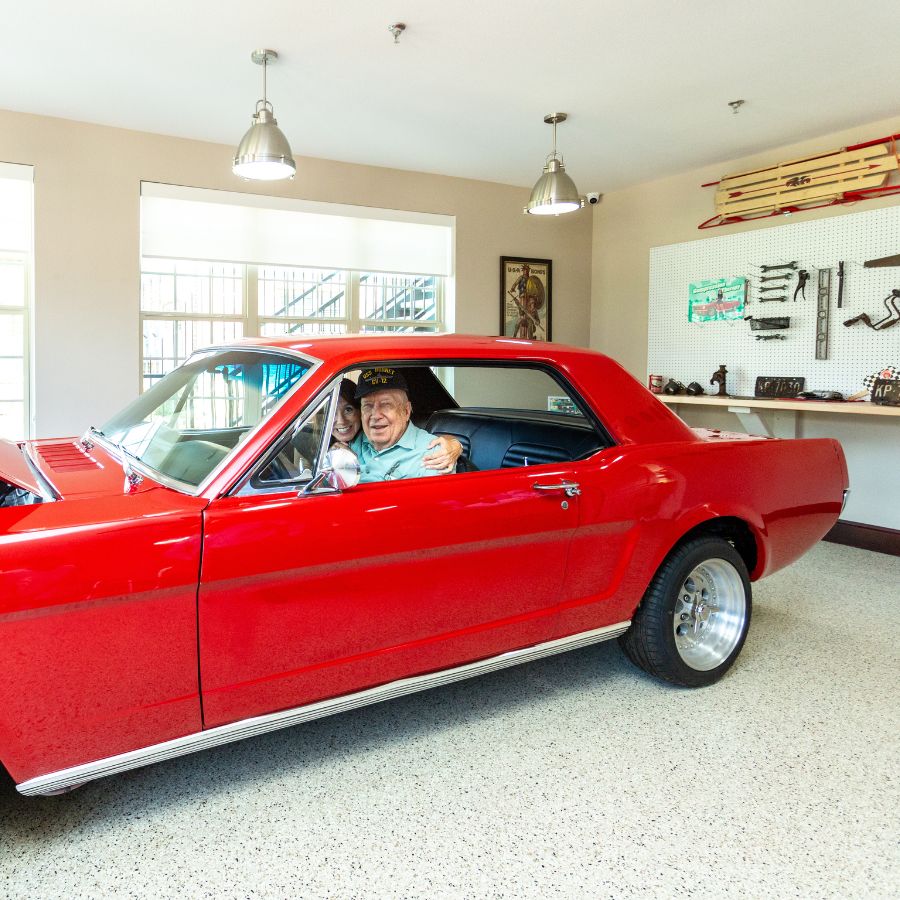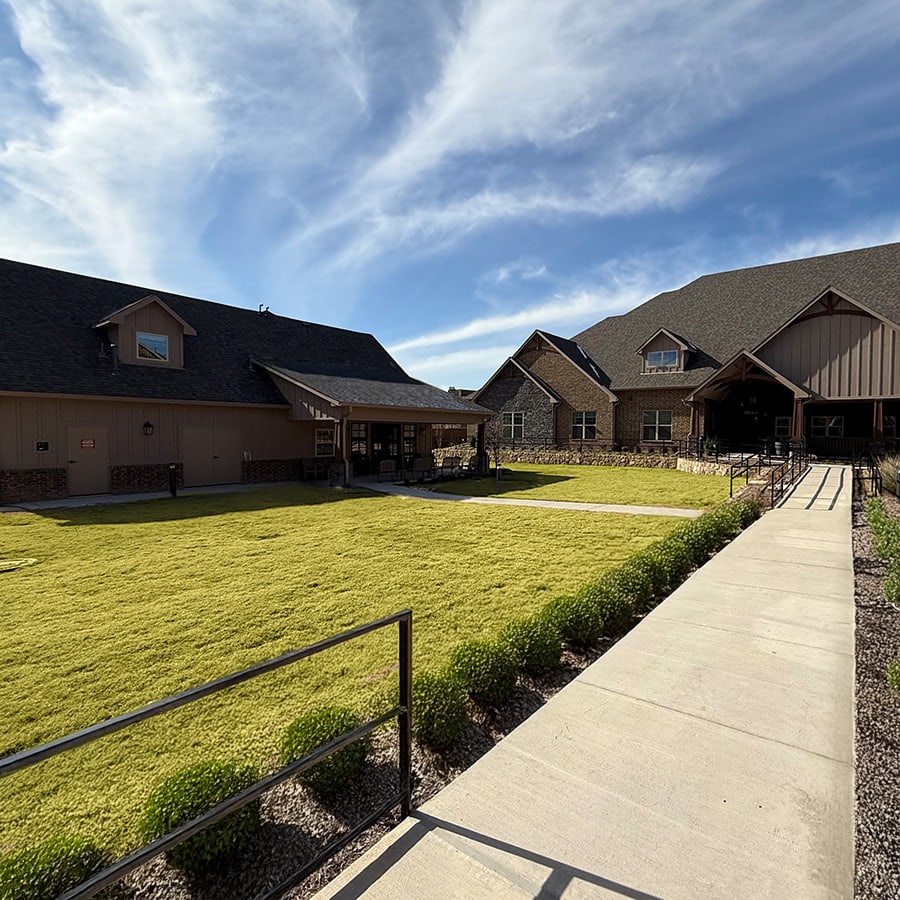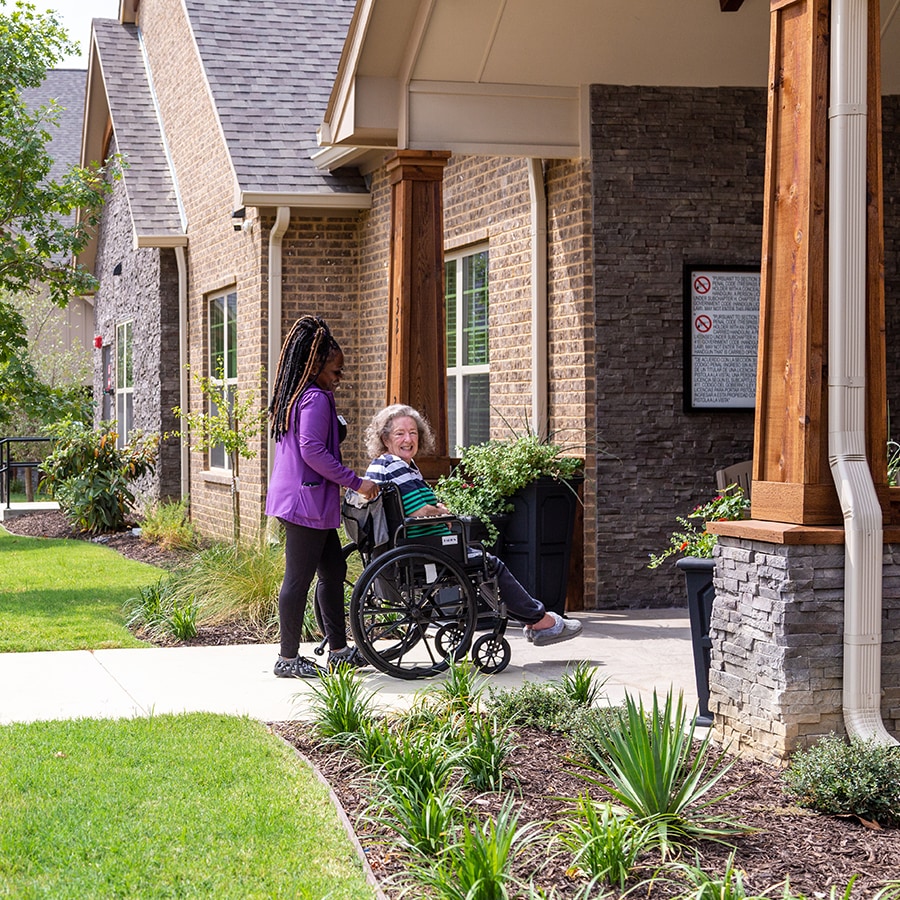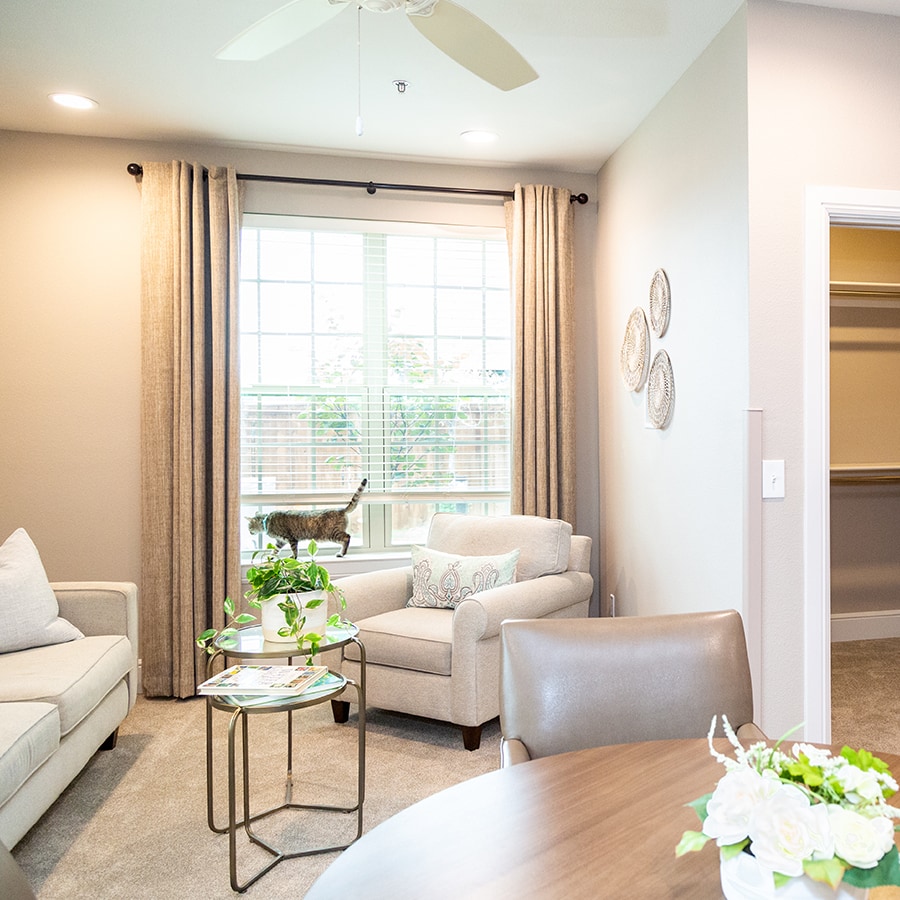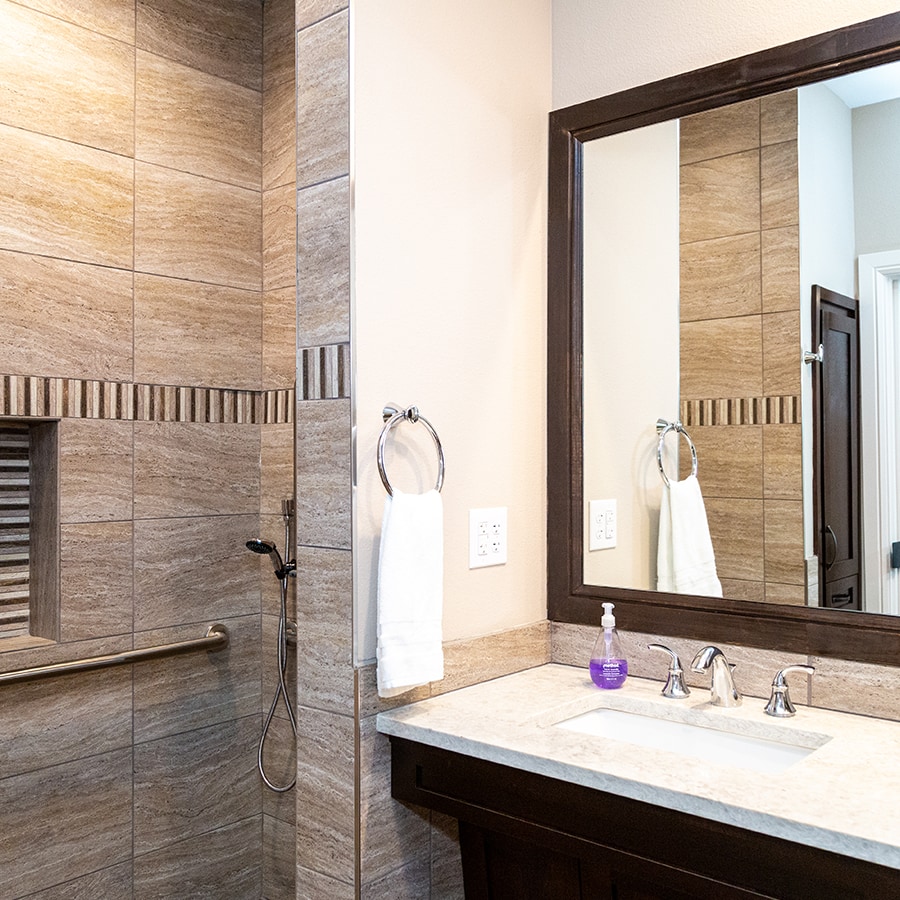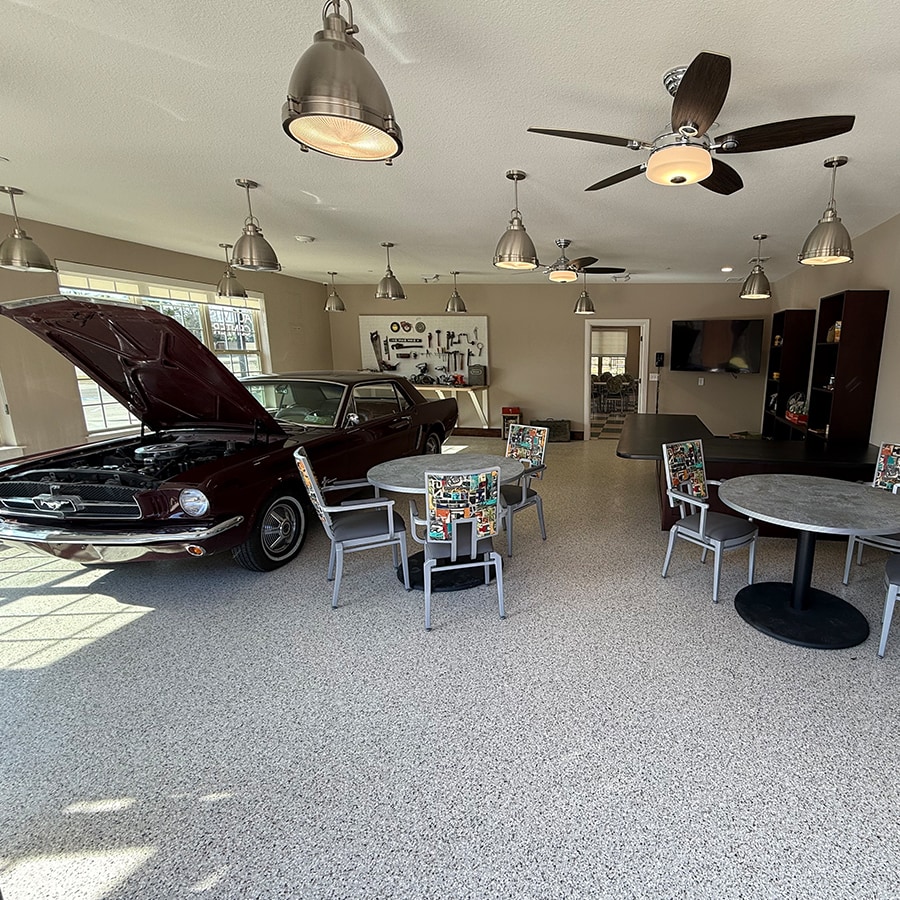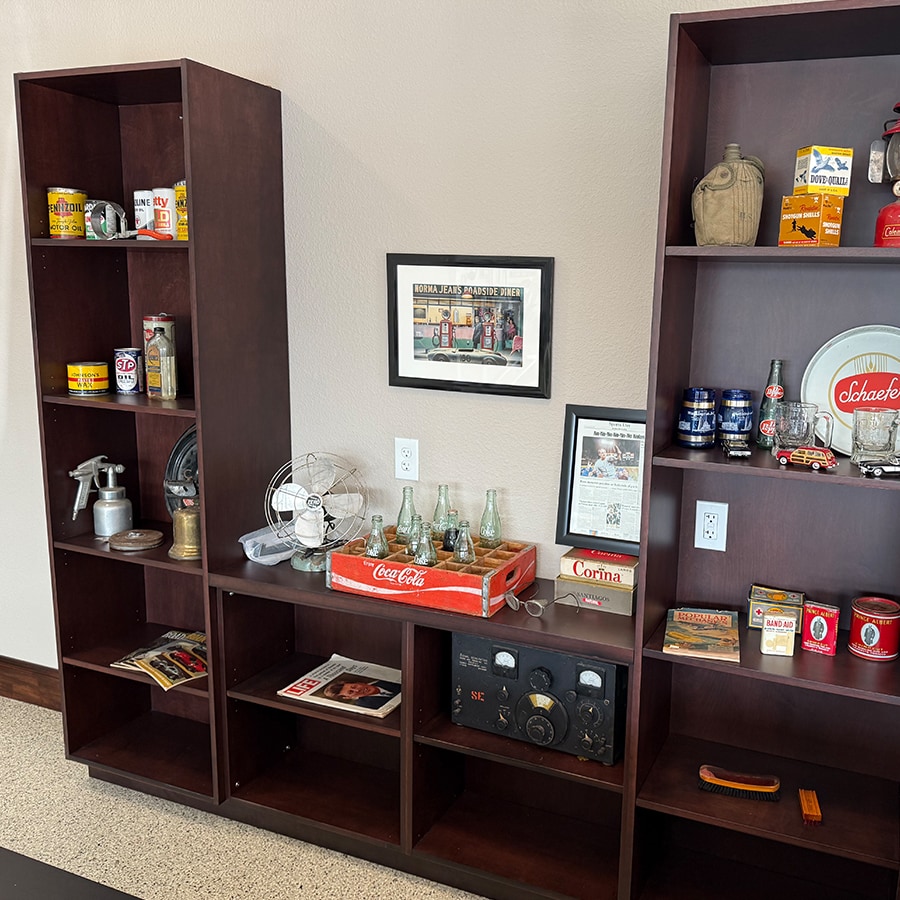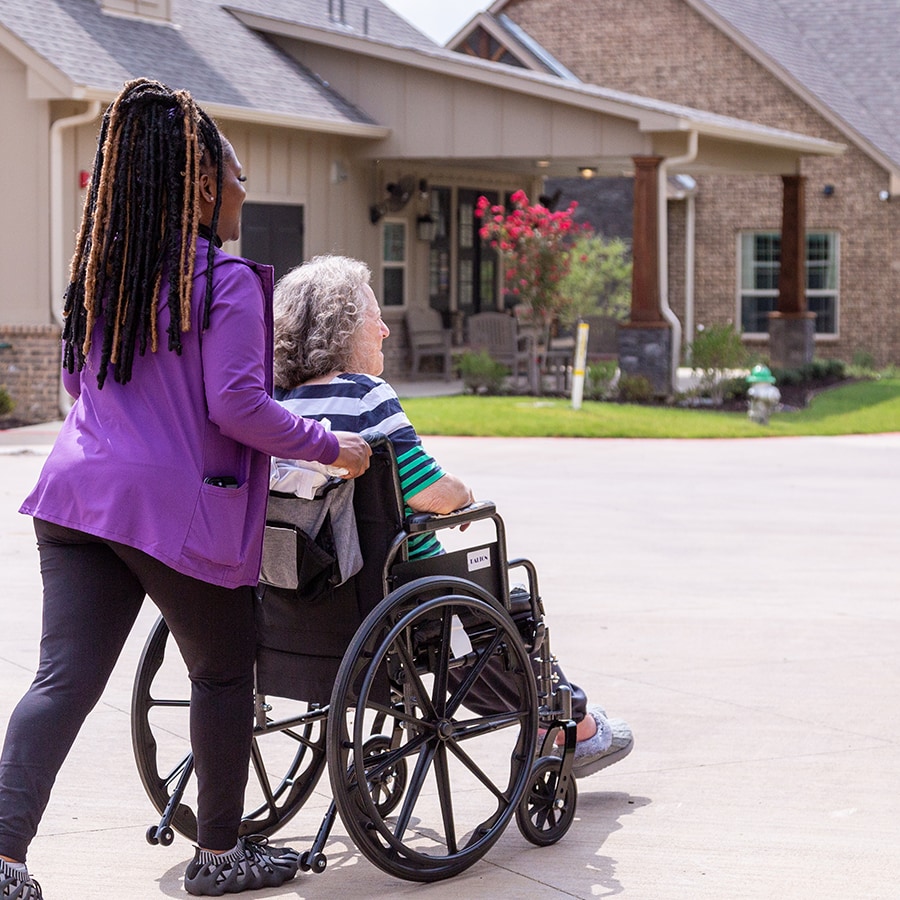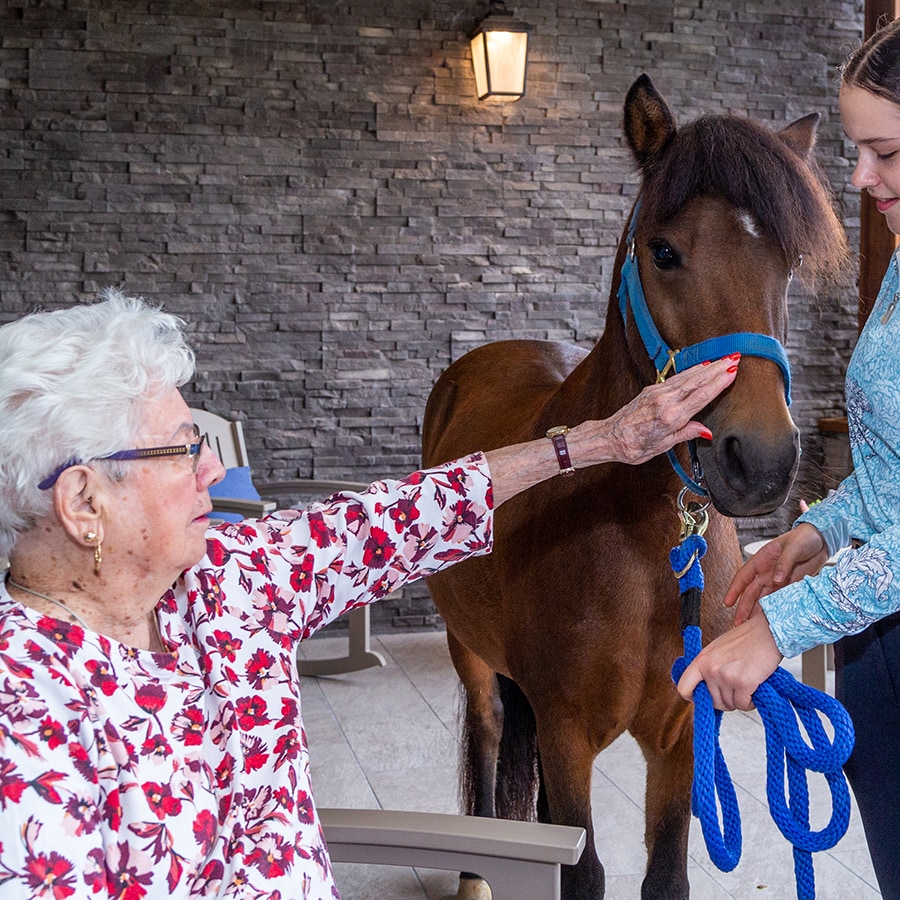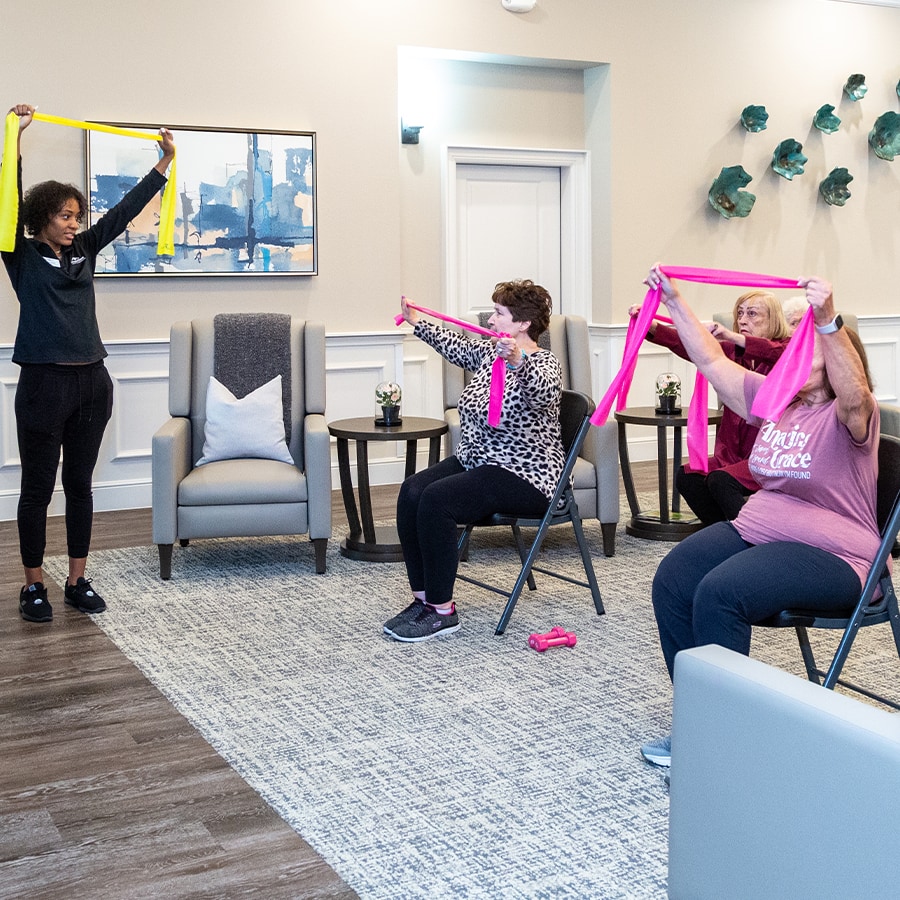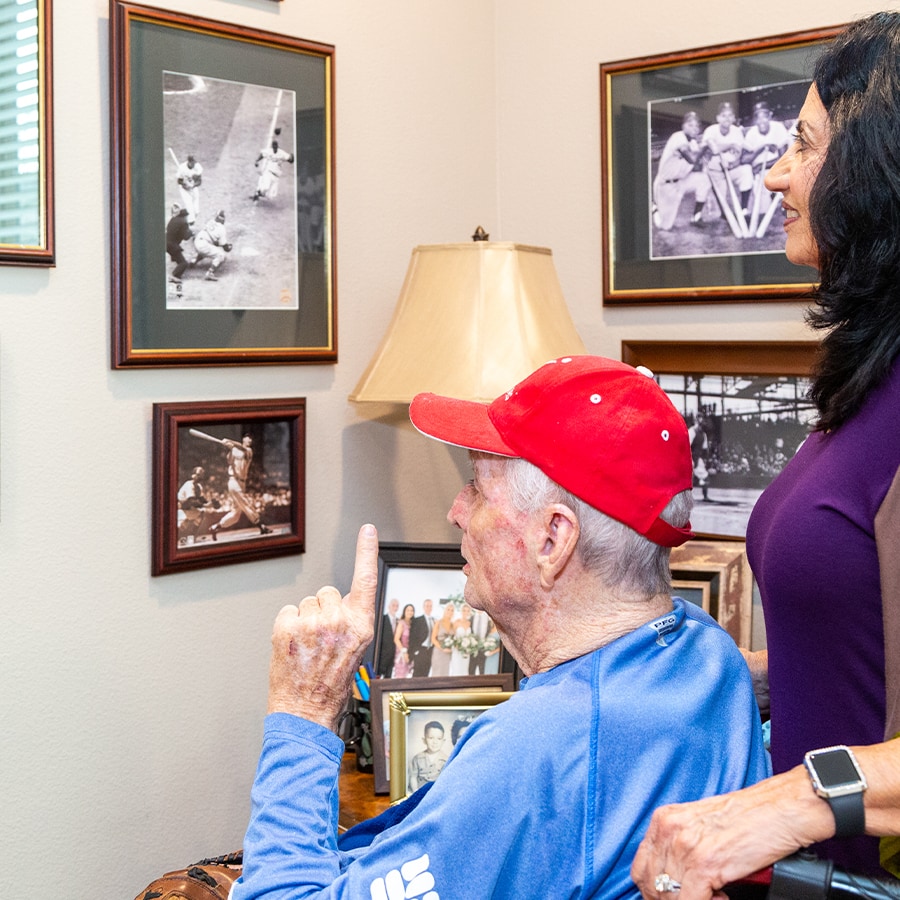Supporting a loved one with dementia is a journey filled with emotional challenges and practical concerns. It’s natural to want to provide the best care possible, but as your parent’s needs evolve, you may find yourself considering a memory care community. This step can be daunting, yet it often leads to a safer and more enriching environment for your loved one, while relieving some of the pressure on family members.
Understanding when to make this move and preparing for it can help ease the transition. Additionally, you should communicate clearly with your loved one and the community, gather medical records, and build emotional support before the move.
The Benefits of Memory Care
Memory care is about more than just addressing challenges and transitions. Your loved one will benefit from specialized care designed to improve their quality of life.
Individualized Care Plans
Every resident receives a personalized care plan that addresses their specific needs. From medical requirements to social and emotional well-being, these plans ensure every detail is considered.
A Secure Environment
Safety features, like secured outdoor spaces and monitoring technology, give residents freedom to explore while staying protected. Families gain peace of mind knowing their loved ones are safe.
Social Connection
Isolation can accelerate cognitive decline, but memory care fosters community and engagement. These communities encourage residents to build relationships through group activities, social events, and shared experiences.
Enhanced Life Enrichment
From using personal family recipes in meal preparation to providing pet-friendly services, memory care communities focus on creating a warm, familiar atmosphere. These small but meaningful details can make a big impact on well-being.
Recognizing the Need for Memory Care
Deciding to move a parent into memory care is never easy. However, there are key signs that this level of professional support may be necessary:
Safety Concerns
Does your parent wander, leave stoves or appliances on, or engage in behaviors that could lead to harm? Memory care offers a structured, secure environment designed to minimize risks.
Declining Personal Hygiene
If your parent struggles with bathing, grooming, or dressing, it may indicate that daily tasks have become unmanageable without assistance.
Nutrition Challenges
Weight loss or difficulty preparing and consuming meals could signal that they’re unable to maintain a healthy diet on their own.
Medication Mismanagement
Forgetfulness about medications, incorrect doses, or skipping pills altogether can have serious health consequences.
Behavioral Changes
Agitation, aggression, or sudden behavioral shifts can be hard to manage at home. Memory care staff are trained to provide supportive strategies for these challenges.
Caregiver Burnout
Caring for a loved one with dementia takes an emotional and physical toll. If you’re feeling exhausted, overwhelmed, or unable to provide the care your parent needs, memory care can provide relief while ensuring their—and your—well-being.
Preparing for the Transition
Making the decision to move to memory care is just the first step. Proper preparation can make the process smoother for everyone involved.
Communicate Clearly
Start by reaching out to a memory care community. Their staff can guide you through the intake process, answer your questions, and help develop a plan tailored to your parent’s specific needs.
Gather Medical Records
Compile your parent’s medical history, doctor’s notes, and current medications to share with the memory care team. These records are essential for creating a comprehensive and personalized care plan.
Prepare Your Parent
How you communicate the move depends on your parent’s cognitive state. For those in the early stages of dementia, having an open and compassionate conversation may help. For people with more advanced dementia, providing reassurance without overwhelming explanations can help the transition.
Build Emotional Support
Don’t overlook your own well-being. Lean on friends, support groups, or professionals as you manage the emotional weight of this transition.

Moving Day
The day of the move can bring up a mix of emotions, but thoughtful planning can make it less stressful.
Keep It Simple
Focus on the essentials and avoid over-complicating the day. A calm, straightforward approach allows your parent to feel less overwhelmed.
Create Comfort
Bring along familiar items like a treasured blanket, family photos, or their favorite chair. These items can help your loved one feel grounded in their new space.
Introduce the Staff
Take the time to introduce your loved one to the caregivers and staff. These connections can make the new environment feel more welcoming.
Helping Your Parent Settle
Adjusting to memory care can take time, but your involvement plays a critical role in helping your loved one feel at home.
Visit Regularly
Frequent visits provide a sense of stability and connection while showing your parent that they are still an important part of your life.
Join in Activities
Memory care communities can organize tailored activities to foster engagement and social interaction. Join your parent in these activities to help them become more comfortable with their new routine.
Partner with Caregivers
Share insights about your parent’s preferences, history, and personality to help caregivers provide personalized care. Open communication benefits everyone involved.
Take the Next Step with Teresa’s House
Moving your parent with dementia to memory care is a significant decision, but it can lead to better days for both of you. Teresa’s House in McKinney is dedicated to providing compassionate, expert care in a setting that feels like home.
If you’re ready to learn more about how we can support your parent, reach out to us today to schedule a tour. Teresa’s House is here to guide you through every step of this important transition.
